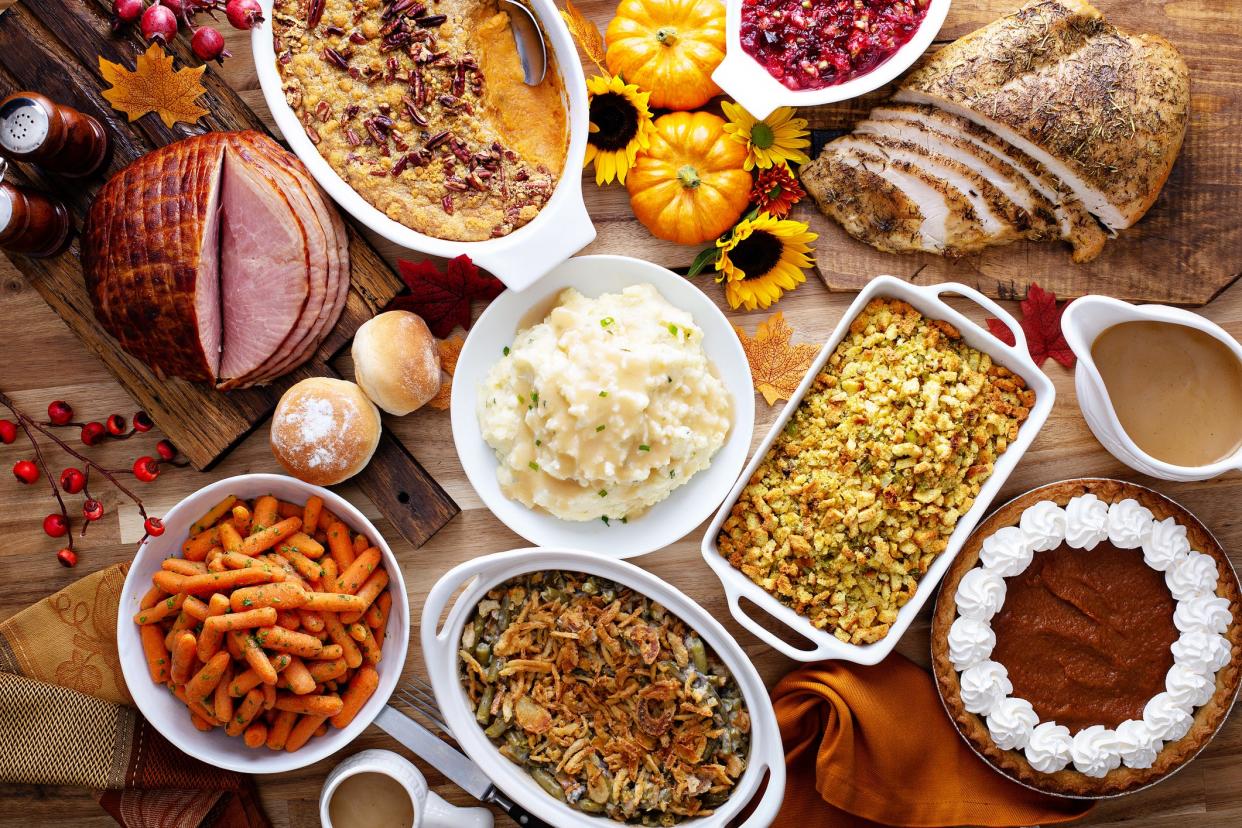Avoid a trip to the ER on Thanksgiving: 5 things you need to know to stay safe, healthy

- Oops!Something went wrong.Please try again later.
An estimated 55 million Americans are predicted to be traveling this week for the Thanksgiving holiday. That's an increase of 1.5% from 2021.
For those of us working in the Emergency Departments, the holidays can be busy. We tend to see an increase in certain types of emergency conditions and injuries, ranging from travel-related illnesses to food-specific injuries.
But knowing a few tips and being prepared can ensure you have a safe, happy holiday with your loved ones.
Here's five things for you and your family to keep in mind this Thanksgiving along with tips on what you can do to stay safe and healthy.
More: We've long been told salt is bad for you. Is it really?
Common flu vaccine myths debunked: What you need to know this flu season
Turkey and food safety
A 2017 study estimated that people are 10-times more likely to get food stuck in their throat during the holidays than any other time. Turkey and other meats, as well as bones from chicken or fish are the common culprits. While choking is an awful sensation, most of the time the food is impacted in the esophagus and not in your breathing tube, the trachea.
Here's what you can do if you feel food or a bone gets stuck in your throat:
Don't panic
If you can breathe and talk, the food is likely in your esophagus and not your trachea
Try to take small sips of water or soda; often this is all that's needed to help the food pass. Soda or carbonated water bubbles can help break down the food bolus too.
If these steps don't work, head to your local ER where us doctors can try a medication called glucagon, to relax the muscles of your esophagus. Or, if needed, we can consult a gastroenterologist who can use a probe called an endoscope to safely remove the blockage.
Protect yourself from common respiratory viral infections
As I've written previously, there is a potential for high rates of three viral infections to overwhelm hospitals at the same time: influenza, COVID-19, and RSV. Children's hospitals across the country are already facing severe bed shortages.
To protect yourself:
Get the flu vaccine for everyone 6 months and older
Reset your thinking on COVID-19 vaccines; despite how many shots you had previously, get an updated booster. I recommend waiting six months after a recent infection or previous booster. Remember, it can take up to two weeks to reach optimal protection from the vaccine.
If you have sick kids at home, postpone that visit with elderly or immune-compromised friends and relatives
Get prepared: What you need to know about RSV, the flu and virus myths
Are common multivitamins worth the money? New study explores the benefits, harms.
Mind your heart health
We see a significant increase in patients in the ER with acute exacerbations of diabetes and congestive heart failure after the holidays. This is likely due to an overindulgence of foods high in sodium (not salt) and sugar.
Common high sodium culprits include ham, mashed potatoes, stuffing and cheese and cracker snack combinations. Some pies, pastries and cakes are also high in sodium. An excess of sodium can be problematic for those with congestive heart failure and lead to a dangerous fluid overload in the lungs for these patients.
Fatty liver disease affects millions of unaware Americans. Here's what you need to know.
Consider these healthier, low-sodium options:
Sweet potatoes
Swiss cheese
Fresh turkey
We've long been told salt is bad for you: Is it really?
Don't forget to get moving
Take frequent breaks on long car rides or flights, particularly if you or your family members have a history of blood clots, known as deep vein thrombosis or pulmonary embolism. We have a high suspicion for blood clots in patients who come to the ER with calf pain or shortness of breath or chest pain after recent long-distance travel for the holidays. Blood clots affect 900,000 Americans annually. In addition to the lack of movement during travel, which increases blood stasis, additional risk factors for blood clots include:
Smoking
Oral contraceptives and pregnancy
History of cancer
Being overweight or obese
Inherited blood clotting disorders
And prepare for longer than usual wait times at your local ER
Emergency room volumes are at their highest level since the pandemic as primary care doctors and specialists still face months-long backlogs of appointments and patients are driven to the ER to seek care.
Post-holiday wait times on Monday and Tuesday after Thanksgiving will be particularly long.
Please try to call your primary care doctor or visit a local urgent care clinic if you have a mild medical problem or injury. Your doctor can also advise you whether you need to go to the ER or not.
More: The dos and don'ts of going to the ER
I went to the ER, and things are not getting better. When is it time to go back?
Michael Daignault, MD, is a board-certified ER doctor in Los Angeles. He studied Global Health at Georgetown University and has a Medical Degree from Ben-Gurion University. He completed his residency training in emergency medicine at Lincoln Medical Center in the South Bronx. He is also a former United States Peace Corps Volunteer. Find him on Instagram @dr.daignault and Twitter @MichaelDaignau3
This article originally appeared on USA TODAY: Thanksgiving food safety, health tips: Turkey hazards, the flu, more

